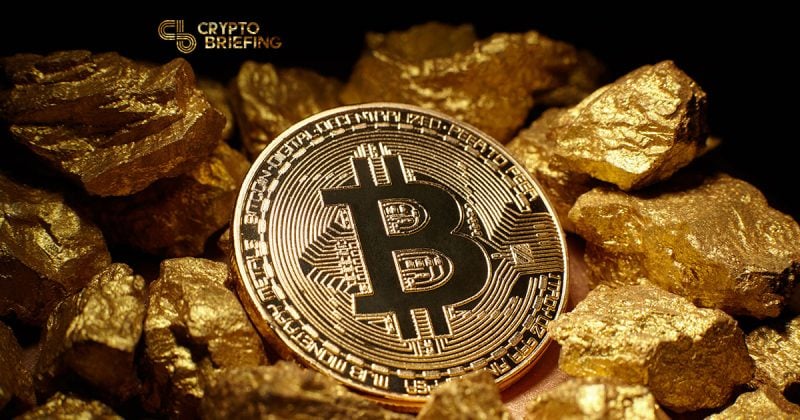
Stick To Sports, Mark Cuban: You Clearly Don’t Understand Bitcoin
Don't compare apples to virtual oranges.
Billionaires are always good for a spectacle. Elon Musk tweets a line about his favourite currency, and Dogecoin moons; when Mike Novogratz or Warren Buffett think aloud, the market holds its breath.
Now another of the gilded breed is offering an unqualified opinion. Mark Cuban, who made billions during the dotcom era, said in an interview last week with a gold news site that he couldn’t see much separating the yellow metal from Bitcoin (BTC).
Commenting on gold as an investment following the latest price surges, Cuban said: “I see gold and Bitcoin as being the same thing.”
“Their value is based off of supply and demand,” Cuban added. Both are essentially “collectibles,” he said, whose strong following keeps prices far above their intrinsic value. The only difference is that Bitcoin has a clearly defined, finite supply, which gold does not.
To be clear, Cuban is no fan of gold. Not only does he hate gold, but, in his own words, he has a “hate with double extreme prejudice with an ounce of hot sauce.”
But is Cuban right to treat gold and Bitcoin as nearly the same thing? He isn’t the only one. As Bitcoin’s main utility has moved from alternative currency to store of value, the idea of ‘digital gold’ has gained some high-profile followers.
Earlier this year, Grayscale launched the #DropGold campaign to encourage more people to invest in their products. It was designed to persuade investors that BTC provides the same store-of-value properties, but with more convenience. The underlying message is that Bitcoin is Gold 2.0.
Gold Member
But there are also key differences that separate the investment profiles of both assets. Gold is tangible, and has a physical representation in the real world. Bitcoin is virtual, existing as a ledger shared between multiple computers dotted all around the world.
Because it exists in the real-world, gold has other utilities than solely as a means of exchange. It’s still a preferred material for jewelry, as a corrosion-free component in electronic devices, for fake teeth, and even in gourmet cuisine. Those additional use-cases play a role in determining market behaviour and its ultimate price.
Bitcoin isn’t much use in dentistry (although Dentacoin has an oddly-loyal following), but it does have a major use-case: buying digital assets. As the default currency for crypto exchanges, its value is high correlated to the rest of the cryptocurrency market.
Bitcoin prices halved during the acrimonious BCH hash war and surged by nearly $6,000 in mid-June, when Facebook revealed its Libra virtual currency. In both examples, Bitcoin’s value changed not because it was a store of value or became intrinsically more desirable, but just because it is the leading cryptocurrency.
Scarcity
We know exactly how many bitcoins can exist in the world: 21M. That number will never increase, it will stay the same for as long as there are computers running Bitcoin nodes.
But how much gold is there in the world? Goldman Sachs estimated that there is only twenty years’ supply left on this planet, and that was in 2015. But as billionaires like Musk and Bezos start spending more vacations in space, it’s entirely possible that they could find new reserves of the yellow stuff.
In fact, they’ve already found one. The ignominiously named asteroid Psyche 16 is believed to be made up of roughly $700 quintillion dollars worth of precious metals – including vast reserves of gold. For perspective, the world economy – the sum of all human effort – is worth somewhere in the region of $60 trillion.
If Psyche 16 could be somehow lassoed and taken down to earth, the new minerals would probably cause the price of gold to crash.
This has happened before, albeit not in space. The Californian gold rush in the middle of the nineteenth century led to a sudden increase in the global gold supply, causing runaway inflation. Some estimates suggest a 30% increase in wholesale prices between 1850 and 1855.
But unlike gold, Bitcoin is truly limited: no amount of space exploration or virtual prospecting will ever uncover an extra satoshi. While demand will always fluctuate, the Bitcoin supply has a fixed ceiling.
Of course, gold and bitcoin also have plenty in common. In the past year, both have seen surges in value because they are seen as a means to preserve value from a global economic meltdown.
But although gold and Bitcoin do have similarities, it’s important these are not exaggerated to a degree that they obfuscate the differences that makes them assets in their own rights.
Cuban probably didn’t expect so much analysis on an off-the-cuff comment. Nonetheless, he misrepresented both, something which could have knock-on consequences. They may not exactly be chalk and cheese, but Bitcoin and gold are far from interchangeable.
